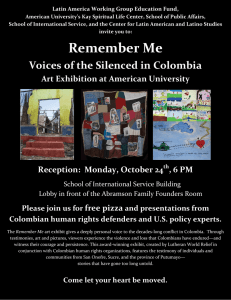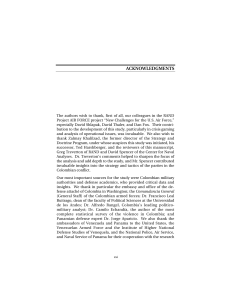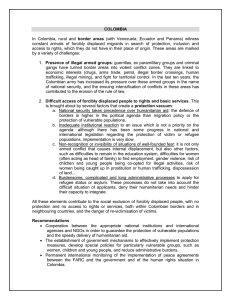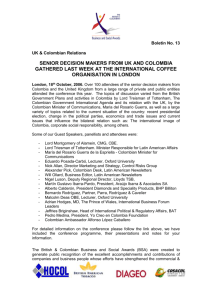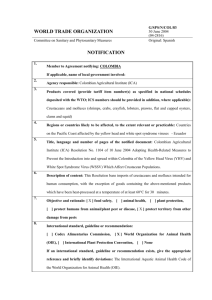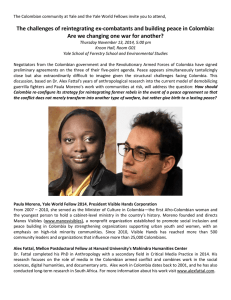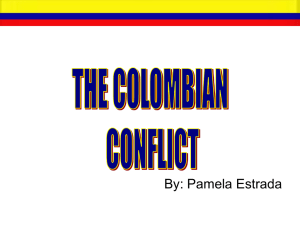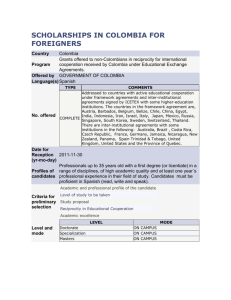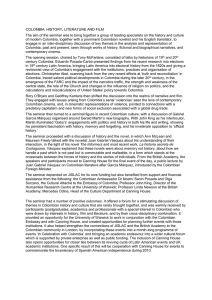NARRATOR: Carabali is determined that the battle is not over. She
advertisement
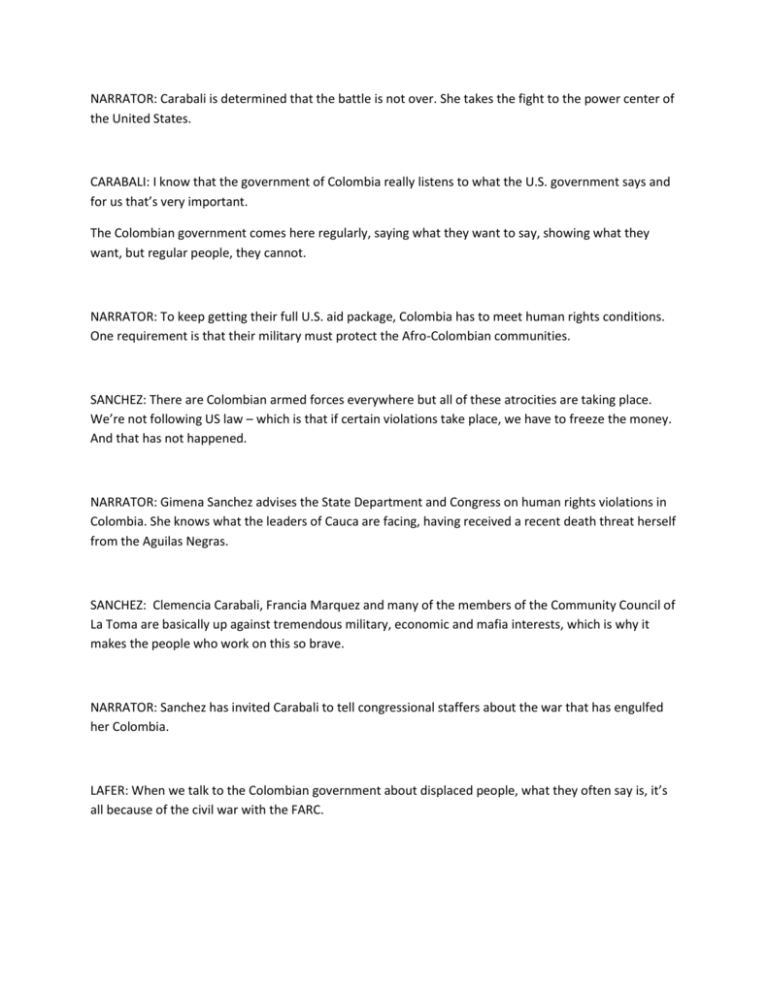
NARRATOR: Carabali is determined that the battle is not over. She takes the fight to the power center of the United States. CARABALI: I know that the government of Colombia really listens to what the U.S. government says and for us that’s very important. The Colombian government comes here regularly, saying what they want to say, showing what they want, but regular people, they cannot. NARRATOR: To keep getting their full U.S. aid package, Colombia has to meet human rights conditions. One requirement is that their military must protect the Afro-Colombian communities. SANCHEZ: There are Colombian armed forces everywhere but all of these atrocities are taking place. We’re not following US law – which is that if certain violations take place, we have to freeze the money. And that has not happened. NARRATOR: Gimena Sanchez advises the State Department and Congress on human rights violations in Colombia. She knows what the leaders of Cauca are facing, having received a recent death threat herself from the Aguilas Negras. SANCHEZ: Clemencia Carabali, Francia Marquez and many of the members of the Community Council of La Toma are basically up against tremendous military, economic and mafia interests, which is why it makes the people who work on this so brave. NARRATOR: Sanchez has invited Carabali to tell congressional staffers about the war that has engulfed her Colombia. LAFER: When we talk to the Colombian government about displaced people, what they often say is, it’s all because of the civil war with the FARC. CARABALI: We know that the guerillas in Colombia are a problem, just like the paramilitaries are a problem. But in reality what we see is that there is an interest in exploiting the natural resources in the strategic areas where the African descendants are living. OFF-CAMERA QUESTION: In your opinion has the rate of displacement, has it stayed the same in the last couple of years? CARABALI: It has increased. I was displaced and I’m still not registered as a displaced person because the local authorities say I have to have a certificate saying who is threatening me. We understand it’s a government policy so that the real numbers don’t show up. CARABALI: And thank you for listening to the other version, not just the government’s. NARRATOR: The tables are beginning to turn. For the first time, the State Department highlights La Toma’s land dispute in its human rights report to Congress. It means they’ll monitor the case…which may offer some protection. SANCHEZ: That means that they ask the Colombian officials to make sure that there’s advancement in that case and that those people are protected. And as such it sends a message to the illegal armed groups that if they were to kill those people or do anything against them, that it would have a great political cost.
